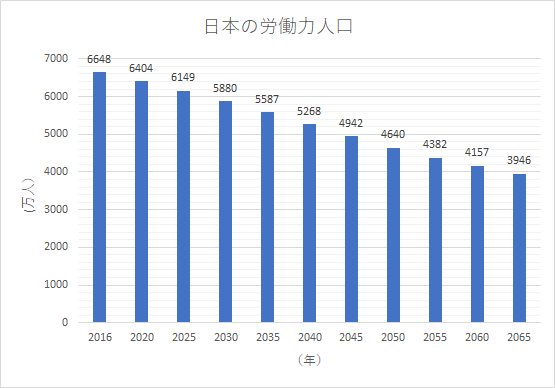Effective April 2019, the new specified skills visa or tokutei ginou visa, 特定技能 will be implemented in Japan as a solution to the ongoing workforce crisis. That implies that there will be a significant increase in demand for foreign workers approximately 260,000 to 340,000 from April 2019 up to the year 2024. This means that the new specified skills visa will greatly impact the company/ business production with their financial growth. On the other hand, this also means more chances of employment for foreign skilled workers and professionals who want to work in Japan.
Below are some of the top questions about this new implementation in Japan.
What are the new specified skills visa in Japan?
First Classification: (SSV-1) Specific Skills Visa-1 with Five Years of Renewable Visa | Second Classification: (SSV-2) Specific Skills Visa-2 with Nonstop Renewable Visa |
|
|
*It is assumed that applicants need to pass the JLPT level N4 or level N5, depending on which specified skill category they belong. Anyway, both level N4 and N5 are exams that measure the level of understanding of basic Japanese language.
Aside from the language proficiency exam, you need to take the skills exam to obtain the specified skills visa. You can check the “Specified Skills No. 1 Evaluation Test” to know more details such as the schedule of the skills evaluation test.
Why does Japan’s Cabinet so eager to implement such bill?
As mentioned above, the primary reason is that Japan nowadays is suffering from labor shortages. If this issue won’t be resolved as soon as possible, Japan will indeed experience an economic crisis. How serious is it? Take a look at the chart below.

On the year 2016, there are 66.48 million workers in Japan but according to the survey, it will reduce to 64.04 million in the year 2020, and will continue to fluctuate negatively as the years go by. This is not healthy for the Japanese economy because local Japanese citizens alone cannot suffice the employment demand of the country. It obviously shows that there’s a lot of job offers in Japan but only with few qualified applicants to a specific sector. And so, to whatever classification a foreign worker belongs, he/ she will be assigned to a sector with a greater need for workers. Such sectors include the following:
For First Classification: Must have at least knowledge and skills in…
- Electronics
- Construction
- Industrial Machinery
- Shipbuilding and Marine
- Raw Material Industry
- Automobile Maintenance
- Food Service
- Aviation
- Food and Beverage
- Agriculture
- Nursing Care
- Accommodation Industry
- Building Cleaning
- Fisheries
For Second Classification: Must have a higher level of skills and experience in…
- Aviation
- Construction
- Automobile Maintenance
- Accommodation Industry
- Shipbuilding and Marine
During this implementation, Japan will check its effects and if there will be economic growth in 2021. With this, Japan will be able to determine if this bill can resolve the ongoing issue of labor shortages.
How will this affect current foreign workers in Japan and applicants?
Current foreign workers who stayed years in Japan can be able to qualify for the second classification. With this, they can be able to bring their families in Japan and eventually be a Japanese resident. The good thing with this is that Japan government established a program for Japanese language education and consultation services to help foreigners adjust to Japanese culture and lifestyle. This means that foreigners from kids to adults will lessen any cultural shock and emotional stress. But, how about those currently under the TITP?
| What is TITP? It refers to the Technical Intern Training Program. It is a job training program that provides employment opportunities for foreigners who want to work in Japan before the newly revised skills visa has been approved by the Japan government, and implementation on this program is still ongoing up until the new bill will be implemented in April 2019. Those who are working under the TITP can finish their remaining years maximum of 5 years and will not be allowed to renew their visas. However, with the new revised skills visa bill, their classification from being a “trainee” will be changed to “skilled worker” which they may also benefit from the indefinite residence status where they can be able to bring their families with them but in a condition that they will pass the skills and language test. |
On the other hand, new applicants will have greater chances of having jobs in Japan according to their specialization. Their hard work and sacrifice will in time not be wasted as they can be able to apply to the nonstop renewable visa as long as they hit the higher level of their specialized skills and obtain a long-term employment contract from their employer. The same as the current foreign workers in Japan, newly hired workers will also undergo the program for consultation services to help them adapt to the Japanese lifestyle.
What are the other important facts about these newly revised visas?
- Japanese citizens are not qualified for these new visa statuses
- Companies both in public and private sectors are expected to provide foreign workers a support plan which includes:
- Secured housing support
- Education on Japanese lifestyle and administrative procedures
- Assistance towards mastery of the Japanese language
- Responding to the foreign workers’ work-related concerns
- Assistance for terminated foreign workers (Termination happens when a foreign worker acts inappropriately especially if he/ she will be identified as illegally employed. However, if the foreign worker has been forced to end the job but the employment is still under contract, he/ she must receive assistance to be relocated to a different company so that he/ she can still continue working in Japan)
- The specified skills visa may be stopped in case there’s no longer labor shortage to a specific sector but will be resumed whenever labor shortage hits again
- Current foreign workers in Japan can be able to apply for the second classification visa but new applicants are needed to start with the first classification visa
- Foreign workers who want to apply for the first classification visa don’t need to have job experience as long as they pass the knowledge test on a specific skill
- Foreign workers who want to apply for the second classification visa must meet the given requirements such as to have an employment contract, long-term job history, and a higher level of experience on a specific skill
Learn Japanese Now!Learning the Japanese language is indeed important. Why? Here are the following reasons:
|
So to summarize, what steps should an applicant need to take in order to apply for the specified skills visa? First, you must have knowledge of specific skills to pass the required skills evaluation exam. And job experience is an advantage though it is not necessarily needed for the first classification visa. Second, you need to have a basic Japanese language skill that will help you pass the Japanese Language Proficiency Test (JLPT). Third, make sure that you are in the right employment agency to ensure that your employment in Japan is legitimate and not illegal. And of course, once you get hired, you need to know your benefits as a foreign worker. Your understanding of your rights will protect you against any harm during employment.
Please note that updates about the newly revised skills visa implementation in Japan will be publicized even to foreign countries.
Now if you have already the skills, but do not have the Japanese language skills yet. We recommend you to learn Japanese by studying in your country or coming here to Japan to take a long-term or short-term course. FAIR Study in Japan can assist you.
On the other hand, if you want to switch your visa to a specified skills visa, then you need to apply for permission for a change of status of residence in the Bureau of Immigration office.
If you are already in Japan and you hold a valid visa with eligibility to work part-time, check “Part-time Jobs in Tokyo for Foreign Nationals“ article to learn the in-demand jobs in Tokyo.












Currently I’m at Japan on 2 years language learning visa. I would like to take exams for Specified Skills and change my visa to Specified Skilled Work Visa. Is it possible to take that exam while I’m on student visa?
Are those working under TITP with a one-year contract like me eligible for this newly implemented VISA?
Nevertheless, you end your contract with TITP, then you can apply for the specified skills visa.
I’m curious about the specified skills visa. When I was in the US last, I worked at the airport, putting baggage on planes and things of that nature. Are such skills valued in the aviation category? Also, if someone wanted to do fishing and/or agriculture, but doesn’t have any such skills just yet, are there resource material that I could study, prior to taking the test?
For more information about accepting foreign workers in the aviation field, please check the link below.
https://www.mlit.go.jp/koku/koku_fr19_000011.html
For the specific skills test:
https://www.jaea.or.jp/
Hello, I am interested in the ss1 visa. Is it possible to apply for it on my own? And if I want to work in one of the industries but do t have much experience in that industry what’s the possi of me getting the ss1 visa in that industry??? I can read a little Japanese. I have worked in restaurant and grocery stores. It says there is a food and beverage industry and hotel industry. I might be able to apply for those. I’m not sure. Do I already need experience or is there any training programs I could get into so that I could get the ss1 to work? I found this website and read about the TITP. Would I be able to get Into that program to gain experience? I am really interested in this whole thing. Could someone pls contact me back. Also I don’t have a degree in an industry. I do have a certificate for peer support but no experience in that line if work. It’s like working with people who are trying to get their life together after something bad happened in their life or who are still recovering. Anyways please contact me.thankyou
Hi! You need to pass at least JLPT N4 and pass the specified skills test. If you have both requirements, no need to apply for TITP. Please read this article, Specified Skills Visa Evaluation Test